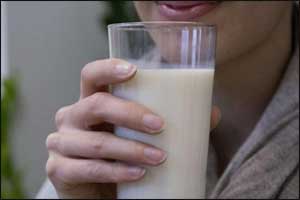- Home
- Editorial
- News
- Practice Guidelines
- Anesthesiology Guidelines
- Cancer Guidelines
- Cardiac Sciences Guidelines
- Critical Care Guidelines
- Dentistry Guidelines
- Dermatology Guidelines
- Diabetes and Endo Guidelines
- Diagnostics Guidelines
- ENT Guidelines
- Featured Practice Guidelines
- Gastroenterology Guidelines
- Geriatrics Guidelines
- Medicine Guidelines
- Nephrology Guidelines
- Neurosciences Guidelines
- Obs and Gynae Guidelines
- Ophthalmology Guidelines
- Orthopaedics Guidelines
- Paediatrics Guidelines
- Psychiatry Guidelines
- Pulmonology Guidelines
- Radiology Guidelines
- Surgery Guidelines
- Urology Guidelines
Milk taken with breakfast beneficial in management of type 2 diabetes

According to a new study Milk taken with breakfast lowers blood glucose throughout the day. Therefore a modification in the breakfast routine may provide benefits for control and management of type 2 diabetes, according to a new study published in the Journal of Dairy Science.
"Metabolic diseases are on the rise globally, with type 2 diabetes and obesity as leading concerns in human health," Dr. Goff and team said. "Thus, there is the impetus to develop dietary strategies for the risk reduction and management of obesity and diabetes to empower consumers to improve their personal health."
Although the team only found a modest difference in food consumption at the lunch meal when increasing whey protein at breakfast, they did find that milk consumed with a high-carbohydrate breakfast reduced blood glucose even after lunch, and high-protein milk had a greater effect. Milk with an increased proportion of whey protein had a modest effect on pre-lunch blood glucose, achieving a greater decrease than that provided by regular milk.
According to Dr. Goff and colleagues, "This study confirms the importance of milk at breakfast time to aid in the slower digestion of carbohydrate and to help maintain lower blood sugar levels. Nutritionists have always stressed the importance of a healthy breakfast, and this study should encourage consumers to include milk."
For further reference log on to :
https://doi.org/10.3168/jds.2018-1441

Disclaimer: This site is primarily intended for healthcare professionals. Any content/information on this website does not replace the advice of medical and/or health professionals and should not be construed as medical/diagnostic advice/endorsement or prescription. Use of this site is subject to our terms of use, privacy policy, advertisement policy. © 2020 Minerva Medical Treatment Pvt Ltd